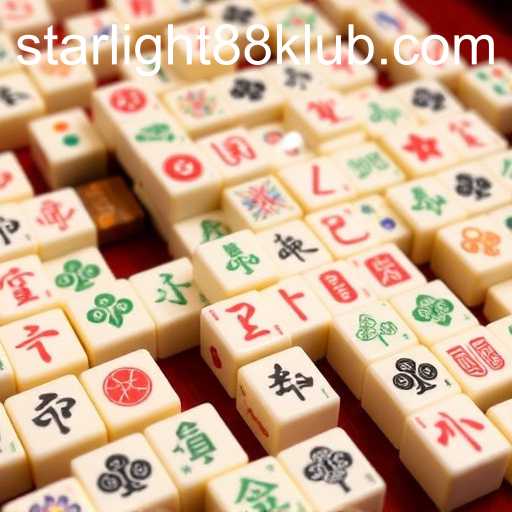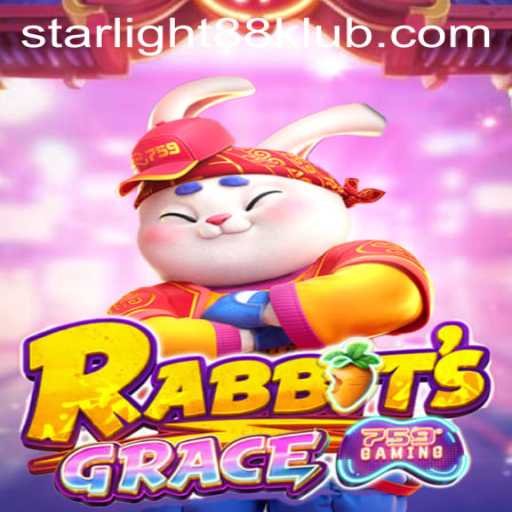
Why Choose Sport in starlight88
- ⚽
Full Coverage
Follow a wide variety of sports, including football, basketball, and more.
- 📊
Detailed Statistics
Access comprehensive data to help you make informed decisions.
- 🎁
Special Promotions
Earn exclusive bonuses and participate in end-of-year offers.
Exploring the World of Mahjong: A Deep Dive into the Game's Intricacies
- 🏆
Soccer
Watch live matches and enjoy the best betting options.
- 🏀
Basketball
Dive into the on-court action with exclusive stats and analysis.
- 🎾
Tennis
Bet on international tournaments with competitive odds.
Discovering the Ancient Excitement: Sic Bo
Sic Bo, a traditional Chinese dice game, captivates with its thrilling blend of chance and strategy, making it a beloved staple in both land-based and online casinos worldwide. Explore the dynamics, history, and variations of this timeless game.
- 📖
Study team statistics and performance before betting.
- 🕒
Gamble responsibly and set clear limits.
- 💡
Take advantage of seasonal promotions to maximize your earnings.

Mahjong

Delving into the Rich History of Mahjong
Mahjong is a fascinating game with a rich heritage that dates back to ancient China. Believed to have originated in the mid-19th century, it is a game that combines skill, strategy, and a bit of luck. Often likened to the card game Rummy, Mahjong is played with tiles rather than cards and requires players to draw and discard tiles to form winning combinations known as melds.
The Origins and Evolution of Mahjong
The exact origins of Mahjong are shrouded in mystery, with several theories suggesting its beginnings. Some believe it was inspired by traditional Chinese card games, while others argue it has its roots in ancient domino and card games. Regardless of its precise origin, Mahjong began gaining popularity in the Yangtze River delta region of China and eventually spread throughout the world.
By the early 20th century, Mahjong had reached the United States, where it experienced a surge in popularity. The game was embraced by a wide audience, leading to the formation of various Mahjong leagues and clubs. Today, Mahjong is played in numerous forms, with rules that can vary significantly depending on cultural influences and regional preferences.
The Basic Rules of Mahjong
Navigating the world of Mahjong can be initially overwhelming due to its intricate rules and unique set of tiles. Typically, the game is played with four players, but variations exist for three-player games as well. The standard set comprises 144 tiles, which are categorized into suits, honors, and bonus tiles.
Suits are further divided into three categories: Bamboo, Characters, and Dots. Each suit contains tiles numbered from one to nine. Honors include the four Wind tiles (East, South, West, North) and the three Dragon tiles (Red, Green, White). Bonus tiles consist of flower and season tiles, which can aid in forming a complete hand.
At the heart of Mahjong gameplay is the objective to form four sets and a pair. A set can either be a 'Pong' (three identical tiles) or a 'Chow' (a sequence of three consecutive tiles in the same suit). The game begins with players drawing and discarding tiles in a bid to complete their hand and declare 'Mahjong,' signaling a win.
Strategic Elements to Master in Mahjong
As with many traditional games, mastering Mahjong requires understanding and applying strategic elements. Players must be able to discern patterns, predict opponents' moves, and adapt their strategy based on the tiles in play. Unlike many Western card games, Mahjong is less about luck and more focused on critical thinking and tactical prowess.
Experienced players often employ strategies such as 'Starlight88,' a calculated tactic that involves reading opponents' discards to deduce their hands. This strategy emphasizes paying careful attention to the flow of the game and anticipating other players' goals. Whether it's deciding when to change tactics or choosing which tiles to keep or discard, strategy significantly influences the game's outcome.
Moreover, Mahjong requires players to balance offensive and defensive strategies. While being aggressive may yield quicker results, a more defensive approach can help thwart opponents' attempts to claim victory.
The Cultural Significance of Mahjong
Beyond being a mere game, Mahjong holds substantial cultural significance in several regions around the world. In China, it is often associated with social gatherings and familial bonds. It brings people together, creating opportunities for communication and camaraderie, bridging generational gaps common in modern society.
In the West, Mahjong has been embraced by various communities, particularly among the Jewish population, where it became a staple in social settings. The game's ability to foster social interaction makes it more than just a pastime; it is an enduring cultural phenomenon.
Variations of Mahjong Across the Globe
One of the intriguing aspects of Mahjong is its adaptability, which has resulted in numerous variations across different regions. In Japan, the game is known as Riichi Mahjong, which includes specific rules and tiles not found in traditional versions. Japanese Mahjong often incorporates a gambling element, adding layers of complexity and depth to the game.
In America, the National Mah Jongg League (NMJL) codified the rules to suit Western audiences, creating a distinctive version with slight variations in scoring and gameplay mechanics. Other countries, such as Korea and the Philippines, also have their own unique interpretations, each adding variation to the universal Mahjong experience.
The Digital Era: Mahjong in the Modern Age
With the advent of technology, Mahjong has progressively transitioned into the digital realm. Online platforms offer players the ability to engage in Mahjong matches with opponents from all over the world, transcending geographical boundaries. Digital versions of the game come with diverse modes and challenges, catering to both novices and seasoned players.
Apps and multiplayer gaming platforms have breathed new life into Mahjong, making it accessible to younger generations who might not have experienced the traditional game. These digital incarnations have maintained Mahjong's appeal, proving that this ancient game is adaptable to the modern era.
Concluding Thoughts on Mahjong
In the world of games, Mahjong stands out as a rich tapestry of history, culture, and strategy. Its enduring popularity across generations is a testament to its complexity and universal appeal. Whether played in a cozy living room with family or competed in online championships, Mahjong continues to be a captivating game that challenges the mind and brings people together.
Breaking News
-

Explore the vibrant world of RaveClub and uncover the secrets of Starlight88. From game mechanics to current events, immerse yourself in this dynamic digital experience.
-

Dive into the vibrant universe of PinataWins and discover what makes this game stand out in the current gaming landscape.
-

Dive into the captivating gameplay of EgyptTreasure, a game combining historical intrigue and modern challenges, with this comprehensive guide.
-

Explore the intricate universe of RabbitsGrace, a pioneering game that blends traditional gameplay mechanics with innovative storytelling. Learn about its rich narrative, captivating characters, and immersive rules that set new standards in the gaming industry.
-

Explore the thrilling world of RunningAnimals, a captivating game that combines agility and strategy under the vibrant theme of Starlight88.
-

Explore the captivating world of OishiDelights, a game that marries culinary creativity with strategic gameplay.
-

Discover the immersive world of DevilFire2 and its captivating gameplay. Dive into the introduction, gameplay dynamics, and rules of this engaging game, intertwined with current trends.
-

Dive into the mesmerising world of ScratchMatch, a captivating game that blends strategy with entertainment.


